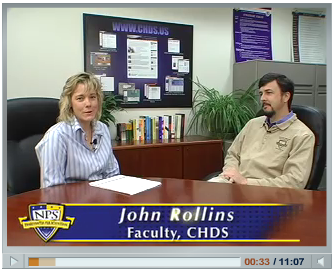Vulnerabilities During Presidential Transitions

2008-2009 Presidential Transition: National Security Considerations and Options
In the Viewpoints in Homeland Defense and Security podcast episode you will view this week, John Rollins, a faculty member at the Center for Homeland Defense and Security at the Naval Postgraduate School and a subject matter expert on terrorism, national security, foreign affairs, and defense, discusses the unique challenges with respect to national security for the Obama administration in this first presidential transition since 9/11. In the interview, Mr. Rollins provides recommendations for President Obama’s homeland security leadership team to promote strategic changes in decision and policy-making for homeland security.
Note that this podcast was recorded on 7 August 2008, a full three months before the presidential election. And now you are viewing it almost a year into President Obama’s term as president. Please keep this in mind. As you view this podcast, ask yourself whether or not you agree with Professor Rollins’ assertions. Remember, you have the advantage (bias) of hindsight. Can you think of other considerations?
Click the image to view the podcast. (To access the full library of other great Viewpoints podcasts, visit http://www.chds.us/?viewpoint)
Professor Rollins addresses three top considerations for the president and his administration:
-
DHS, and the plethora of federal organizations it subsumed, had not been through a presidential transition since the department was established. Complicating this transition will be new executive leadership within the department.
-
There is a concern that terrorists may plan attacks during any transition period.
-
Mr. Rollins defines the “transition period” as five stages (not merely from the election to the inauguration). Although we are through the transition period as we begin the course, Mr. Rollins’ definition of the transition period provides valuable insight for future DHS leadership and may help identify vulnerabilities during such transitions.